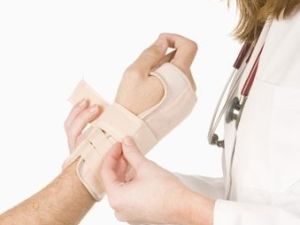
Housekeeper’s RSI – it’s Your Problem
Anyone who has suffered from repetitive strain injury will know of the constant niggling agony of the symptoms.
RSI (occupational overuse syndrome, cumulative trauma disorder or repetitive motion injury to some) is the curse of housekeepers.
The causes of RSI for housekeepers are mainly due to the heavy physical workload and excessive bodily strains that are a high risk for back injuries and forceful upper limb strains in awkward positions that are a similar risk for neck or shoulder and arm injuries. Space limitations traditionally require accommodation-cleaning staff to use many uncomfortable postures. These include standing, stooping, squatting, kneeling, stretching, reaching, bending, twisting, and crouching. Another crucial factor is the necessary speed at which housekeepers are expected to perform.
Moreover it is the constant repetition of the workload that creates RSI.
A housekeeper changes body position every three seconds while cleaning a room. If we assume that the average cleaning time for each room is 25 minutes, we can estimate that a housekeeper assumes 8000 different body postures every shift.
Forceful movements while using awkward body positions include lifting mattresses, cleaning tiles and vacuuming every shift means housekeeping is a physically demanding and very tiring job and the energy required is approximately 4 kilocalories per minute.
As an accommodation provider, is it your responsibility to worry about RSI in your housekeeping (or any other) staff? You bet it is.
The risk of RSI must be identified and reduced in workplaces – this must be done by implementing the requirements of the Manual Handling chapter (part 3.1) of the Occupational Health and Safety Regulations 2007.
The first problem that springs to mind when worrying about manual handling is what is a “safe” weight for a housekeeper to manage.
Don’t look to OH&S regulations to provide any answers to that question.
The Manual Handling section of the Occupational Health and Safety Regulations (2007) does not have either weight or maximum force limits.
However, as is typical with much of Australian legislation, the regulations place the onus on the employer to identify any task that involves hazardous manual handling and then take action to either eliminate or reduce the hazard and/or the associated risks.
How do you reduce the risk factors for RSI? Accommodation complexes are designed for the comfort of their guests rather than their housekeeping staff. This fact makes it very difficult to improve working conditions for housekeepers by means of better engineering. However, some improvements can be made by selecting more appropriate equipment such as lighter vacuum cleaners, more ergonomically designed service carts with wheels designed for carpeted floors and so on.
New approaches should be implemented for improvement such as job rotation, job enrichment and job enlargement, team work, education and training on work practices.
A well-designed job, supported by a well-designed workplace and proper tools, allows the worker to avoid unnecessary strain of the neck, shoulders and upper limbs. However, the actual performance of the tasks depends on individual workers. Training should be provided for workers that are involved with housekeeping activities. It is important that housekeeping staff be informed about hazards in the workplace so identification of the hazards for such injury in accommodation complexes is fundamental.
According to ABS statistics, the most commonly reported injuries in the hospitality industry were sprains and strains (30%) followed by chronic joint or muscle conditions (18%) – both include RSI. Around a quarter of the most recent work-related injury or illness were sustained mostly by lifting, pushing or pulling objects (27%).
But, disturbingly, around 30% of persons who worked at some time in the last 12 months had not received formal training in occupational health and safety risks in the workplace.
All accommodation providers should be aware of their responsibilities under WH&S regulations.

AccomNews is not affiliated with any government agency, body or political party. We are an independently owned, family-operated magazine.






